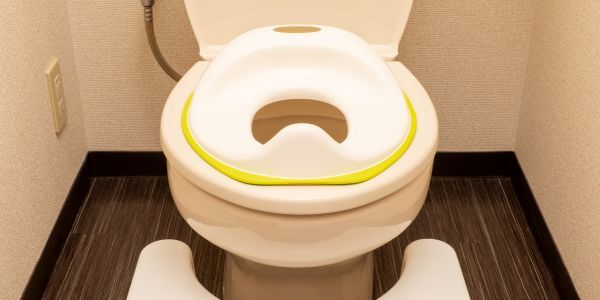

‘Has Max been referred for autism assessment…? I’ve noticed that he’s stimming a lot.’
I was taken aback – yes, yes he has been referred by our Health Visitor, but I assumed our Key Worker (who is also SENCO) knew as I’d made nursery aware. Anyway, that’s besides the point and doesn’t explain why I was surprised.
It was the first time someone had used the terms autism and ‘stimming’ with me directly, about Max’s behaviours, without me instigating the conversation… the ‘have you noticed him flapping and spinning?’ chats, and the ‘he’s not talking at all…’ conversations, as well as ‘autism runs in my husbands family, and I am diagnosed too’ meetings.
For the first time it became clear that it wasn’t just us seeing the signs. I felt conflicted, and in a way guilty, because on the one hand I was relieved and grateful that I clearly wasn’t losing the plot and seeing things that aren’t there, but on the flip side, I felt sad because I don’t want my baby boy growing up with the same struggles I had. The guilt was because I was GLAD someone else was seeing what I was seeing.
At this point, I will take the opportunity to explicitly emphasise that I’m NOT sad at the prospect of my son joining me on the autistic spectrum, or having an autistic child! He is such a happy, sweet little boy, autism or no autism, and THAT is what matters fundamentally.
Any negative emotion stems from the stigma autistic people often face, even in 2019, and remembering my own childhood… the bullying for being ‘weird’, not understanding social ques (as an adult I’ve learned a lot and am a master at masking), and feeling like everything I said and did was wrong. I can only hope that times have moved on from when I was at school and that Max makes a close circle of understanding friends like I have.

So, my toddler has been referred for autism assessment… what next?
Because Max is still considered relatively young for an autism assessment as he’s not yet 3, he may even be turned away from the first stage of the referral depending on the questionnaires me and nursery have both had to fill out. We’d then have to wait a few months for more questionnaires and be referred. If he’s accepted, it’ll be a long term process of observation, assessment in different settings, and different professionals working with him to map out if he is neurodivergent, what sort of neurodivergence he has (because ADHD and other things will also be considered).
In the meantime, we’re blessed with a fantastic nursery who would do anything to make sure Max is happy and developing well, and a family with members on the spectrum, so plenty of support from experienced in laws. Not forgetting me… the autistic mum!
In contrast to all of the above, there’s every chance Max is NOT autistic (and I would hate to come across as a diagnosis chaser – that, I certainly am not), but while professionals are pointing out areas of concern, I will advocate for Max being assessed and appropriately supported. My baby boy is so intelligent, loving, artistic and hilarious. All we want is to harness his brilliance and help him to get as much out of life & learning as possible.

To other parents out there in the same boat, who have had the same concerns raised about their youngster, I’d share the following tips to help you get your head around the situation and be as supportive as possible to your little one…
- YOU are your child’s number one advocate. If you think something is incorrect, wrong, or needs addressing, you are their voice. Don’t be afraid to speak up.
- Autism is NOT the end of the world. It is a vast, colourful spectrum of beautiful souls, much like with neurotypical folk. Play to your little one’s strengths and skills, and you’ll see your child blossom.
- If your child is in a childcare setting such as nursery, preschool or school, keep all lines of communication clear and open. Make sure all new information is fed back to key workers and managers, that your Health Visitor communicates with them if they say they will, and work together to make sure the setting is helping your little one to flourish. Max’s nursery is doing an ECAT program with him to help his speech before any speech therapy referral, and they’ve done such a brilliant job. We provide them with photos, favourite toys and updates on new spoken words to help them. Team work!
- Listen to your gut instinct. Ignore anyone who says your child doesn’t ‘look’ autistic, or is too social/friendly etc to be on the spectrum – they’re talking nonsense. It isn’t one size fits all, and autism doesn’t mean someone doesn’t want friends.
What next?’ you may be asking. You might feel a bit lost, the road ahead won’t be that clear as the process can vary between locations and individuals, but as long as you persist and work with caregivers & other services, you’ll begin to gain clarity.
Share your similar experiences with us in the comments below.
Love from Katie. Xx


.png)






.jpg)
